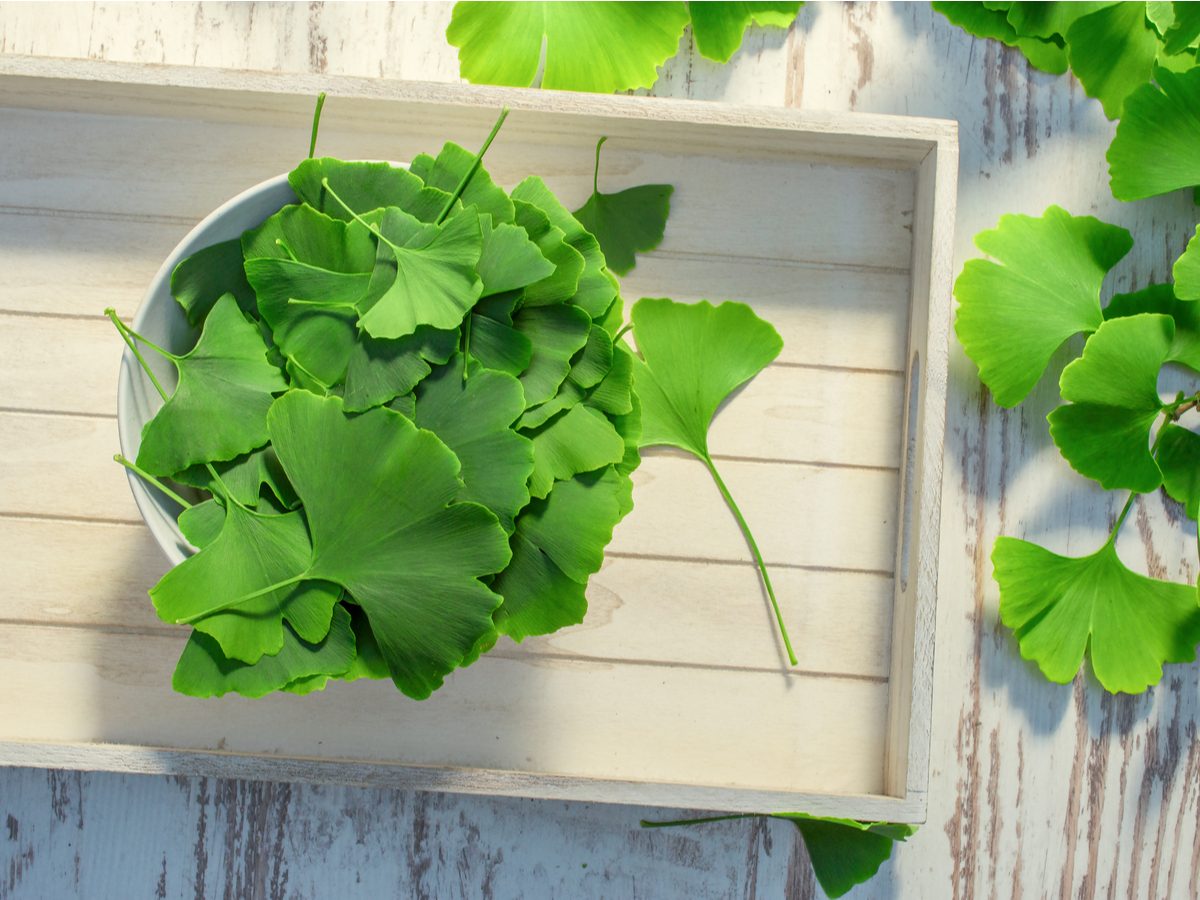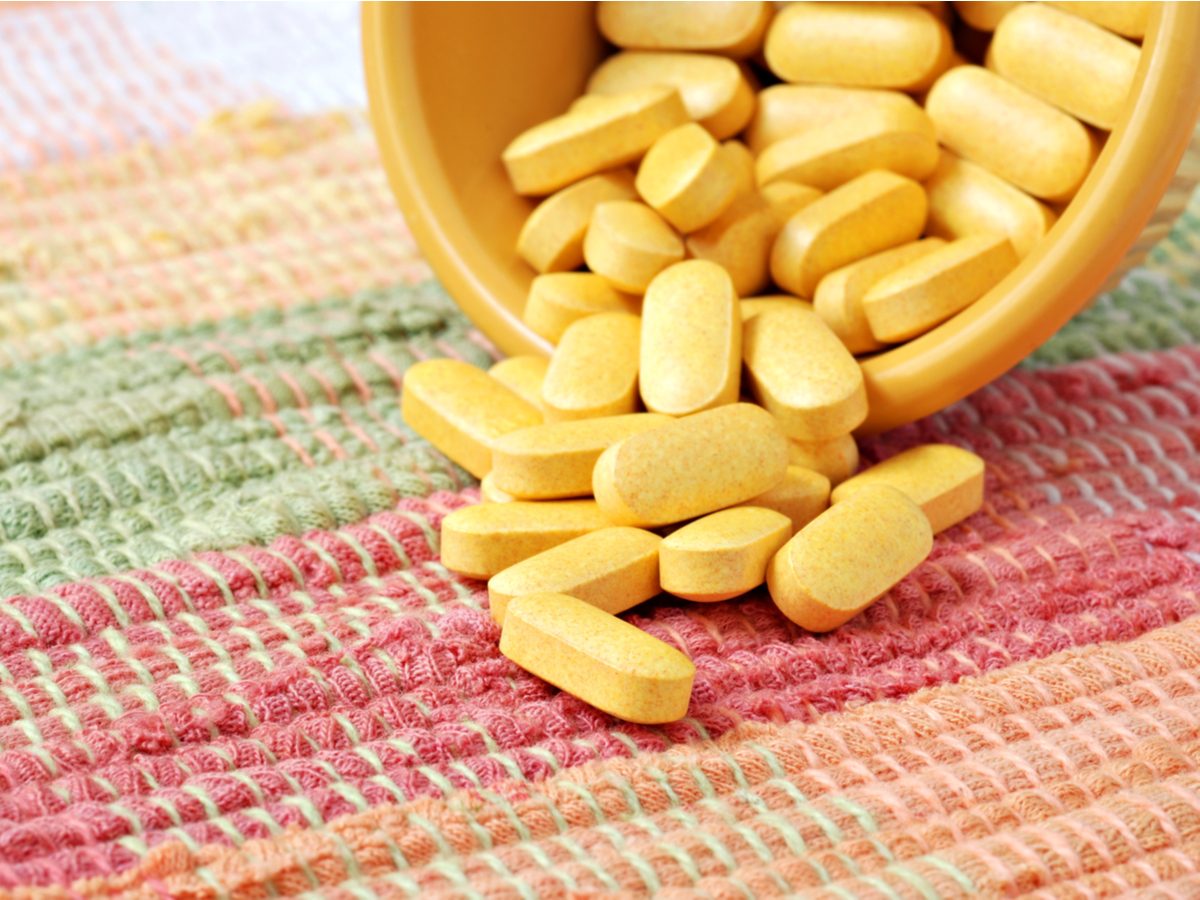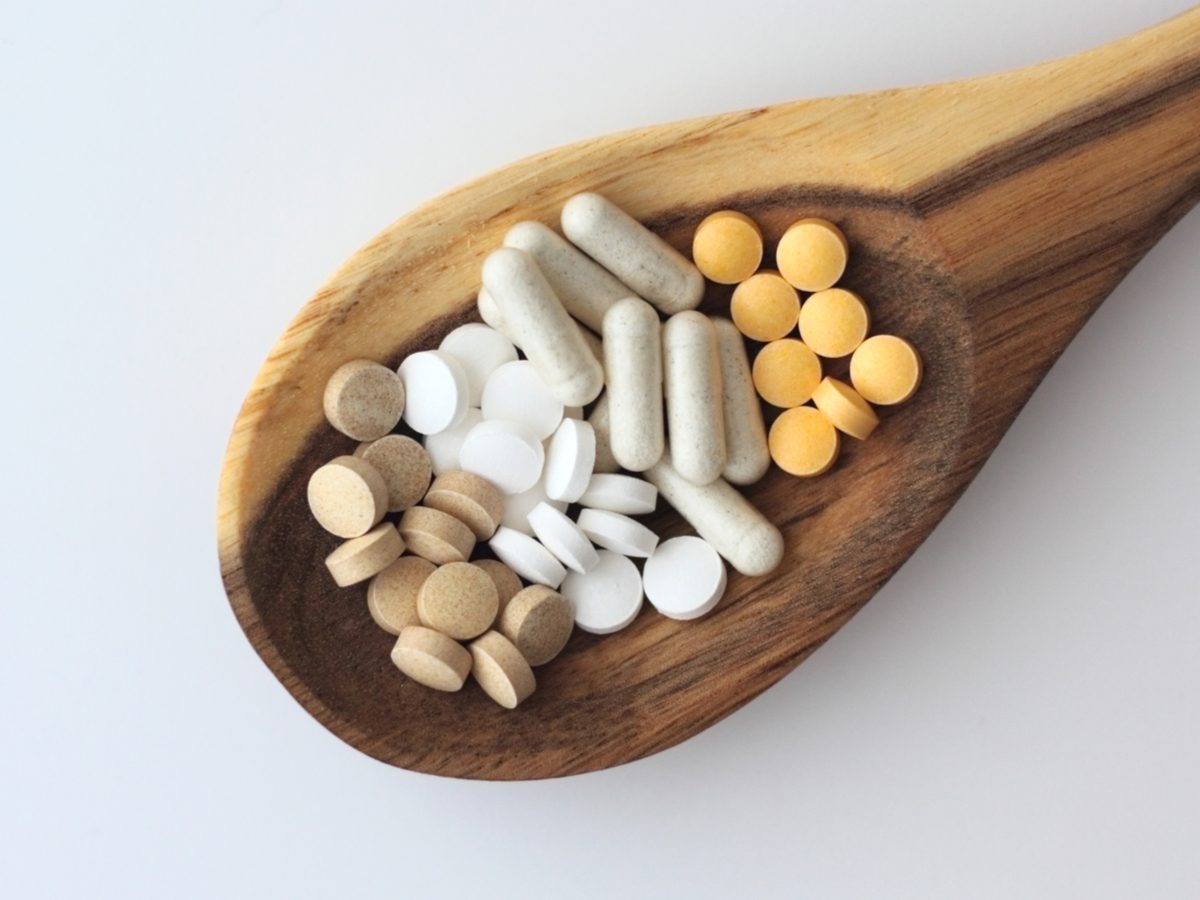
Ginkgo biloba
First things first: If you’re concerned you’re suffering from depression, you should be speaking with your doctor. If you’re looking to take the natural approach to treating mild depression, you may want to give ginkgo biloba supplements a try. This herb increases blood flow to the brain, which can boost energy and help improve concentration. Research hasn’t yet linked this herb directly with mood, but one study found it improved attention and memory—common problems experienced with depression—in a week. In another study, the herb improved some of the sexual side effects some prescription antidepressants can cause.

5-hydroxytryptophan (5-HTP)
This molecule increases levels of the mood-boosting brain chemical serotonin. Studies find it significantly improves mood compared to a placebo.
Make sure you never mix these supplements with medication.

B vitamins
The B vitamins folate and B12 help the brain convert amino acids into mood-boosting brain chemicals such as serotonin. People older than age 60, whose bodies may poorly absorb these vitamins, and vegetarians, who may not get enough B vitamins through their diets, may benefit most from supplements.
These are the 13 essential vitamins your body needs to stay healthy.

S-adenosyl-L-methionine (SAMe)
Like prescription antidepressants, SAMe boosts levels of brain chemicals involved with mood. It works about as effectively as prescription medications and tends to kick in faster (within one to two weeks) than prescription drugs, which may take three or more weeks to begin working.
Could your supplements be doing more harm than good?

Zinc
Low zinc levels may trigger a drop in immunity that affects your mood. In one (very small) study of 14 depressed people, those who took a zinc supplement in addition to a prescription antidepressant were significantly less depressed after six weeks than those taking only the antidepressant.
Happiness can be hard to come by, but science suggests these everyday habits can boost your mood.